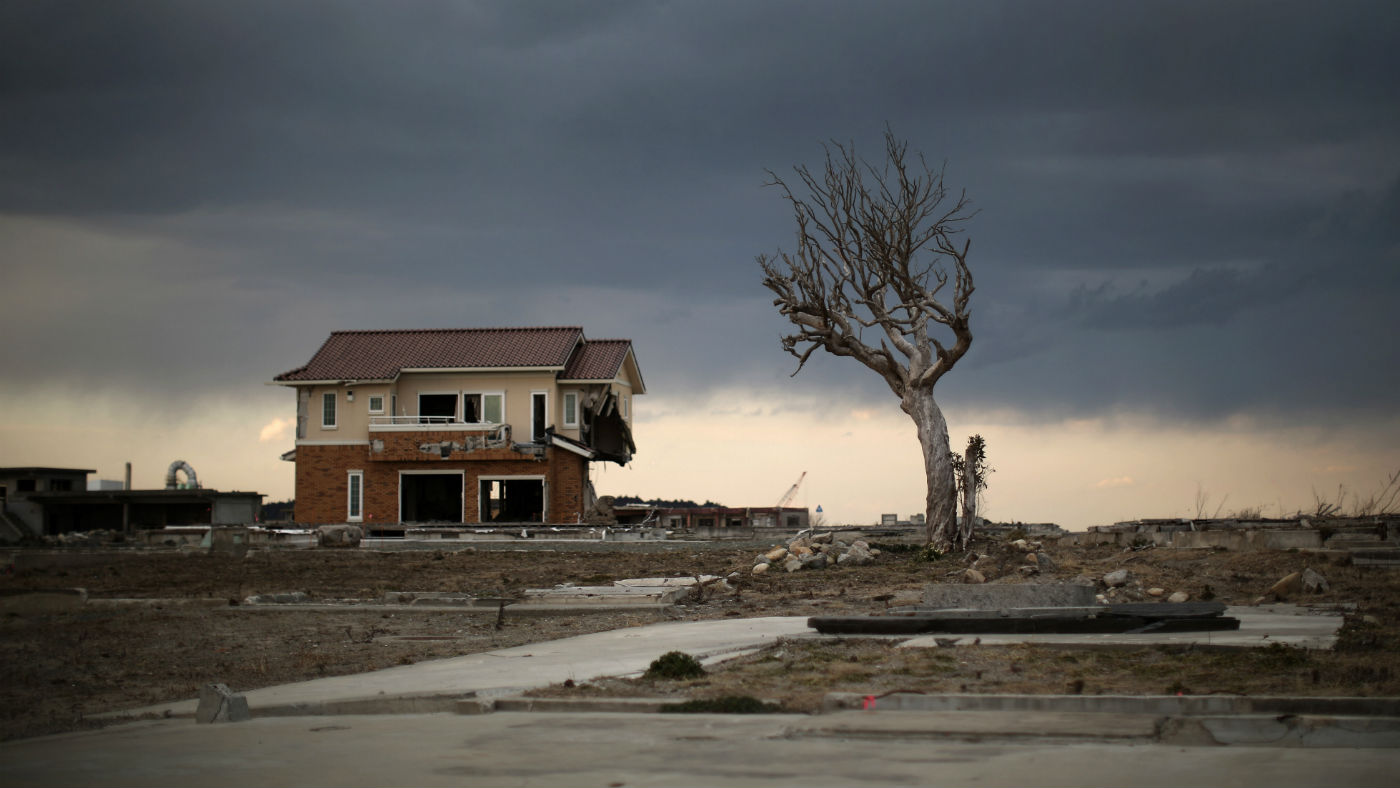Fukushima evacuation order lifted after eight years
Nearly a decade after nuclear reactor suffered meltdown, local residents free to return home

A free daily email with the biggest news stories of the day – and the best features from TheWeek.com
You are now subscribed
Your newsletter sign-up was successful
The Japanese government has lifted the mandatory evacuation order around parts of the Fukushima nuclear power plant, eight years after a massive earthquake caused a meltdown in three of its reactors.
More than 10,000 local residents in the nearby town of town of Okuma were among nearly half a million people to flee the region in the immediate aftermath of the second-worst nuclear accident in history, after Chernobyl.
Ever since, “the government has pushed for an aggressive decontamination programme by removing topsoil, chopping trees and washing down houses and roads in contaminated areas, though experts say the effort only caused the contamination to move from one place to another, creating massive amounts of radioactive waste and the need for its long-term storage”, reports Al Jazeera.
The Week
Escape your echo chamber. Get the facts behind the news, plus analysis from multiple perspectives.

Sign up for The Week's Free Newsletters
From our morning news briefing to a weekly Good News Newsletter, get the best of The Week delivered directly to your inbox.
From our morning news briefing to a weekly Good News Newsletter, get the best of The Week delivered directly to your inbox.
Around 40% of the town has been declared safe for residents to return, The Daily Telegraph says, “although only 367 of the original residents have registered to go back to their homes”.
“Underlining the scale of the problem, the original centre of Okuma remains a no-go zone” says the paper, with the government aiming for the remainder of the city to be declared safe by 2022.
Mayor Toshitsuna Watanabe called it “a major milestone for the town” and The Japan Times says “both the government and the town hope that the change will accelerate the revitalisation of the local community, but repopulation is expected to be slow, partly due to the few commercial and medical services in the area”.
The BBC, meanwhile, reports that “critics have accused the Japanese government of expediting residents’ return in an attempt to showcase safety standards ahead of the 2020 Tokyo Olympics”.
A free daily email with the biggest news stories of the day – and the best features from TheWeek.com
Despite the best efforts of the authorities “concern over the possible health effects of exposure to radiation remains high among people from areas near the plant, particularly families with young children”, says The Guardian.
A poll by the Asahi newspaper and a local broadcaster found that almost two-thirds of evacuated residents felt anxious about radiation despite official claims that decontamination work had been a success.
-
 Sepsis ‘breakthrough’: the world’s first targeted treatment?
Sepsis ‘breakthrough’: the world’s first targeted treatment?The Explainer New drug could reverse effects of sepsis, rather than trying to treat infection with antibiotics
-
 James Van Der Beek obituary: fresh-faced Dawson’s Creek star
James Van Der Beek obituary: fresh-faced Dawson’s Creek starIn The Spotlight Van Der Beek fronted one of the most successful teen dramas of the 90s – but his Dawson fame proved a double-edged sword
-
 Is Andrew’s arrest the end for the monarchy?
Is Andrew’s arrest the end for the monarchy?Today's Big Question The King has distanced the Royal Family from his disgraced brother but a ‘fit of revolutionary disgust’ could still wipe them out
-
 US, Russia restart military dialogue as treaty ends
US, Russia restart military dialogue as treaty endsSpeed Read New START was the last remaining nuclear arms treaty between the countries
-
 Epstein files topple law CEO, roil UK government
Epstein files topple law CEO, roil UK governmentSpeed Read Peter Mandelson, Britain’s former ambassador to the US, is caught up in the scandal
-
 Iran and US prepare to meet after skirmishes
Iran and US prepare to meet after skirmishesSpeed Read The incident comes amid heightened tensions in the Middle East
-
 Israel retrieves final hostage’s body from Gaza
Israel retrieves final hostage’s body from GazaSpeed Read The 24-year-old police officer was killed during the initial Hamas attack
-
 China’s Xi targets top general in growing purge
China’s Xi targets top general in growing purgeSpeed Read Zhang Youxia is being investigated over ‘grave violations’ of the law
-
 Panama and Canada are negotiating over a crucial copper mine
Panama and Canada are negotiating over a crucial copper mineIn the Spotlight Panama is set to make a final decision on the mine this summer
-
 Why Greenland’s natural resources are nearly impossible to mine
Why Greenland’s natural resources are nearly impossible to mineThe Explainer The country’s natural landscape makes the task extremely difficult
-
 Iran cuts internet as protests escalate
Iran cuts internet as protests escalateSpeed Reada Government buildings across the country have been set on fire